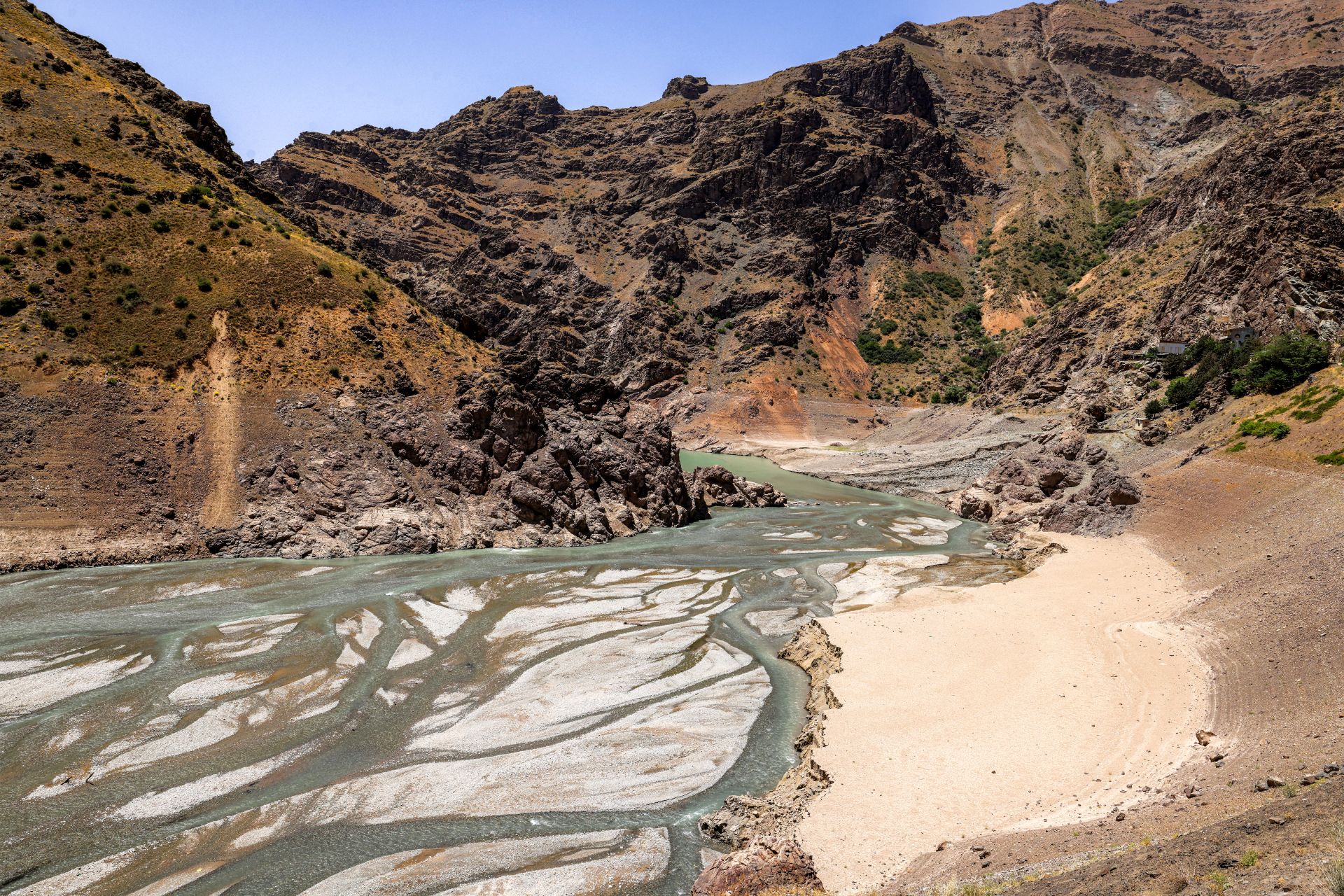- Home
- Middle East
- Drought in Iran: Tehran’s Main Water Reservoir Nearly Dry

The low water inlet of the river upstream of the Amir Kabir dam along the Karaj river is pictured in Iran's northern Alborz mountain range on June 1, 2025. Tehran is facing a water shortage due to low rainfall last year and the beginning of summer. ©Atta Kenare / AFP
Tehran, the capital of Iran, may run out of drinking water within two weeks due to a historic drought that has nearly emptied its main reservoir, state media warned Sunday.
The vast metropolis of more than 10 million people, nestled on the southern slopes of the Alborz range, typically sees hot, dry summers, occasionally rainy autumns, and sometimes harsh, snowy winters.
But Iran is facing its worst drought in decades. In Tehran, rainfall levels are “almost unprecedented in a century,” a local official said in October.
The Amir Kabir dam, one of five supplying drinking water to Tehran, currently holds only 14 million cubic meters of water, 8% of its capacity, according to Behzad Parsa, head of the capital’s water company, quoted Sunday by the IRNA news agency.
This level is only enough to supply the city with drinking water “for less than two weeks,” he said.
A year ago at this time, the dam contained around 86 million cubic meters of water, he added, attributing the drastic drop to a “100% decrease in rainfall” in Tehran and the surrounding region.
Parsa did not comment on the situation of the other dams serving the capital.
Residents of Tehran consume about 3 million cubic meters of water per day, according to local media.
In an effort to conserve water, supply was cut in several districts in recent days, media reported.
Outages had already been frequent this summer.
In July and August, two public holidays were declared in Tehran to save water and energy, as power cuts were occurring almost daily amid a heatwave.
“The water crisis is more serious than is being acknowledged today,” Iranian President Massoud Pezeshkian warned at the time, urging people to “reflect on excessive water consumption.”
AFP
Read more



Comments